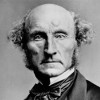“ A husband is dissatisfied with the most obedient wife, when he imagines her conduct is animated by no other principle besides her regard to what the relation she stands in requires. ”
Adam Smith, The Theory of Moral Sentiments (1759). copy citation
| Author | Adam Smith |
|---|---|
| Source | The Theory of Moral Sentiments |
| Topic | husband wife |
| Date | 1759 |
| Language | English |
| Reference | |
| Note | |
| Weblink | https://en.wikisource.org/wiki/The_Theory_of_Moral_Sentiments |
Context
“All those graceful and admired actions, to which the benevolent affections would prompt us, ought to proceed as much from the passions themselves, as from any regard to the general rules of conduct. A benefactor thinks himself but ill requited, if the person upon whom he has bestowed his good offices, repays them merely from a cold sense of duty, and without any affection to his person. A husband is dissatisfied with the most obedient wife, when he imagines her conduct is animated by no other principle besides her regard to what the relation she stands in requires. Though a son should fail in none of the offices of filial duty, yet if he wants that affectionate reverence which it so well becomes him to feel, the parent may justly complain of his indifference. Nor could a son be quite satisfied with a parent who, though he performed all the duties of his situation, had nothing of that fatherly fondness which might have been expected from him.”
source



